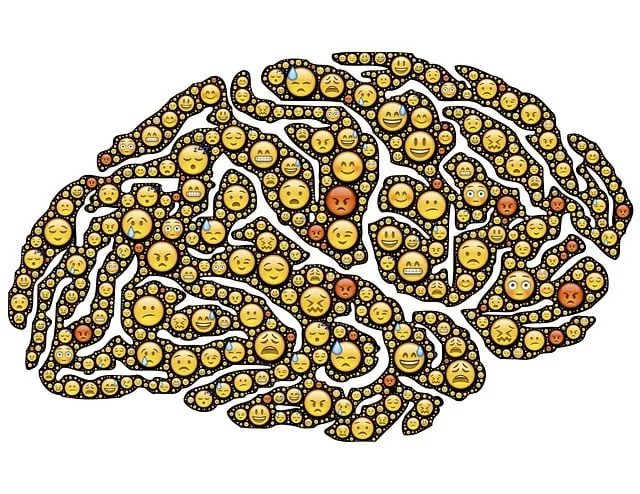Cultural competency training is vital for healthcare providers in diverse communities like Englewood, where access to mental health services varies. By recognizing and respecting individual cultural beliefs and incorporating mindfulness techniques, Kaiser has enhanced its Mental Wellness Coaching Programs, breaking down barriers and empowering patients and providers. Effective training programs, including modules on burnout prevention and coping skills, are essential to improve provider skills in navigating complex patient interactions, ensuring equitable access to mental health services through the Kaiser network.
Healthcare provider cultural competency training is an essential aspect of modern medical practice, especially in diverse communities. This article explores “Understanding Cultural Competency in Healthcare” and its impact on improving patient outcomes. We delve into successful models like Englewood and Kaiser, highlighting their efforts to make mental health services accessible to all. Additionally, practical strategies are provided for implementing effective training programs, ensuring healthcare providers can better serve their patients’ cultural needs. Learn how these initiatives facilitate equitable care, especially when navigating complex issues like accessing mental health services through organizations like Kaiser for diverse communities.
- Understanding Cultural Competency in Healthcare: A Necessary Approach
- Englewood and Kaiser: Accessing Mental Health Services for Diverse Communities
- Implementing Effective Training Programs: Strategies for Healthcare Providers
Understanding Cultural Competency in Healthcare: A Necessary Approach

Understanding cultural competency in healthcare is a necessary approach to providing quality care for a diverse range of patients. It involves recognizing and respecting the beliefs, values, and practices that shape individuals’ health experiences. In communities like Englewood, where access to mental health services through Kaiser might be varied, cultural competency becomes a tool to bridge gaps and ensure everyone receives the support they need. By incorporating mindfulness meditation and mood management techniques, healthcare providers can foster an environment of mental wellness, addressing the unique needs of their patients.
This proactive strategy extends beyond clinical interactions. It encourages professionals to engage in continuous learning about different cultures, including those represented in the Kaiser network. Through educational initiatives like a Mental Wellness Podcast Series Production, healthcare workers can enhance their cultural sensitivity and improve patient outcomes. Such efforts are vital in creating an inclusive healthcare system that values diversity and promotes equitable access to mental health services.
Englewood and Kaiser: Accessing Mental Health Services for Diverse Communities

Englewood, a diverse community facing challenges similar to many urban areas, has found innovative solutions to improve access to mental health services through partnerships with organizations like Kaiser. By integrating cultural competency training into their healthcare model, Englewood residents now have better opportunities to connect with mental health professionals who understand and respect their unique cultural backgrounds. This approach not only addresses the historical underfunding of mental health resources in diverse communities but also promotes positive thinking and burnout prevention for both patients and providers.
Kaiser’s Mental Wellness Coaching Programs Development has played a pivotal role in this transformation, offering tailored services that cater to Englewood’s specific needs. By fostering an inclusive environment where mental health support is accessible and culturally responsive, Kaiser helps break down barriers that have traditionally kept diverse communities from seeking help. This collaborative effort underscores the importance of addressing mental wellness holistically, considering not just access to services but also the cultural context in which care is delivered.
Implementing Effective Training Programs: Strategies for Healthcare Providers

Implementing effective training programs is paramount in enhancing cultural competency among healthcare providers. To achieve this, institutions like Englewood should adopt comprehensive strategies that cater to diverse learning styles and address the unique challenges faced by medical professionals. A balanced curriculum integrating theoretical knowledge with practical exercises can significantly improve provider skills in navigating complex patient interactions.
For instance, incorporating Burnout Prevention Strategies for Healthcare Providers and Coping Skills Development modules can equip them with tools to manage stress and maintain mental wellness. Encouraging practices such as Mental Wellness Journaling Exercise Guidance allows providers to reflect on their experiences, fostering self-awareness and emotional intelligence. By integrating these initiatives, Englewood can ensure its healthcare staff are not just competent but also resilient in delivering quality mental health services through Kaiser, aligning with the growing demand for accessible care.
Cultural competency training is a transformative tool for healthcare providers, ensuring equitable access to care for all communities. By learning from diverse examples, such as Englewood and Kaiser’s collaboration to address mental health disparities, professionals can develop strategies to overcome barriers and improve patient outcomes. Implementing effective training programs that focus on cultural awareness, communication, and community engagement is key to creating a more inclusive healthcare system. Understanding and respecting cultural differences not only enhances patient experiences but also fosters better public health outcomes for diverse populations.






